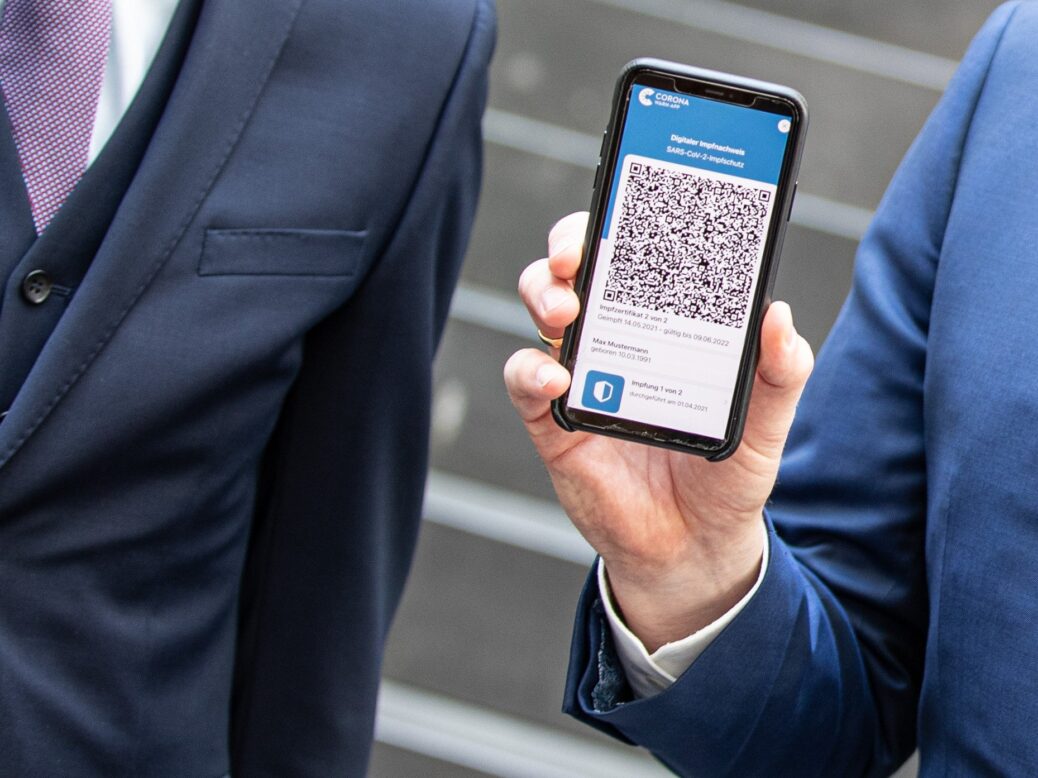
On Monday 16 August, New York City launched its Key to NYC programme, which will ask for proof of vaccination for entry to gyms, restaurants, cinemas and bars. Enforcement of the policy will start next month.
In the UK, the government has also said it is also looking at using the NHS Covid Pass as a way for people to show they’re Covid-free before going into “higher-risk” environments such as nightclubs, or to go into pubs and restaurants if there is a surge of infections in the autumn. This would allow these businesses, many of which can’t make a profit if people are kept two metres apart, to remain open.
Of course, most businesses continue to keep their own measures in place, having been left to decide for themselves which provisions are appropriate when the remaining lockdown restrictions were lifted last month. The challenge now is for them to find a way to offer the confidence to shop in person without limiting their ability to do business.
This is a difficult balance to strike, because there are huge differences in how various groups of customers react to Covid-safe measures. Many independent bookshops, for example, have spent much of the past year asking their customers to wear not only masks but disposable gloves. Their customers – who are more likely to support such measures and may well have an emotional connection to the shop itself – will happily choose a little inconvenience to continue supporting it. Builders’ merchants are the opposite: most of their customers have worked through lockdowns and are demographically less likely to want to observe such measures.
To further complicate matters, it’s also true that the same people can be very different customers. We make quick decisions about our own behaviour by looking at what others are doing – the “social proof ” heuristic – and the social proof available in an independent bookshop is likely to be very different from the social proof available in a builders’ merchant, so the decisions we make about Covid-safe measures are likely to change.
Footfall on high streets is still around 10 per cent lower than it was in 2019, so for many retailers, giving people the confidence to turn up in person – and a level of convenience that compares to e-commerce – could be the difference between success and failure.
A vaccine passport sounds like a decent answer, for most people – wafting your phone at something, or showing a card, is a very low-effort way to get into somewhere. They are already essential for some situations, such as air travel. But enforcing them everywhere could be expensive – it’s another job for a member of staff, and not a nice one when customers disagree – and, similar to no-jab-no-job policies, it also comes with the legal and reputational risk of being seen to discriminate against people who can’t be vaccinated.
Resistance to the idea of vaccine passports is growing, from the MPs of the anti-lockdown Covid Recovery Group and from businesses. Some have threatened legal action if vaccine passports become mandatory for large, crowded venues.
But if there is an autumn wave in the UK, just after the furlough scheme ends and following the reduction in rates relief, the UK will need to choose between disregarding public health on behalf of businesses (never out of the question), or filtering out the customers who pose more of a risk to everyone else.
This choice has been made before. The 2007 smoking ban was another public health measure that many at the more libertarian ends of the political spectrum saw as likely to damage businesses, but it was unquestionably a good thing. More than 1.9 million people quit smoking in a decade, prolonging and improving their lives and relieving the NHS and the wider economy of a massive burden.
For many pubs, the smoking ban was bad news – but for many others it was a great benefit, as more families and non-smokers went to pubs for meals, allowing for significant growth in gastropubs and the wider hospitality industry. The business of drinking beer, which had become consolidated, generic and unfashionable, was then revitalised by a wave of new breweries. Public health and consumer confidence have always been closely linked.
[See also: Will the “experience economy” transform the struggling British high street?]






